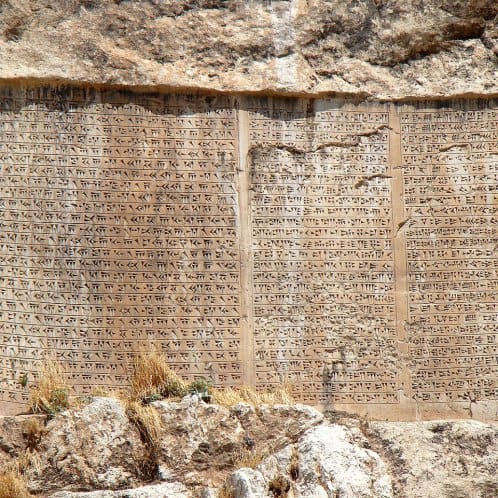While you’ve probably heard of the Rosetta stone (the trilingual inscription written in ancient Greek, Egyptian and Demotic), the lesser known inscription of Xerxes I, King of Kings of the Achaemenid Empire, made around 500 BC, often goes ignored.
It’s written in Old Persian, Elamite, and Babylonian, all of these being offshoots of Cuneiform, the oldest known written language.
Not only does this inscription predate the Rosetta stone by around 300 years, it also makes it clear as day how powerful translation can be in delivering information to the masses.
A translation into English reads: «A great god is Ahuramazda, the greatest of the gods, who created this earth, who created yonder sky, who created man, created happiness for man, who made Xerxes king, one king of many, one lord of many.
I (am) Xerxes, the great king, king of kings, king of all kinds of people, king on this earth far and wide, the son of Darius the king, the Achaemenid.
Xerxes the great king proclaims: King Darius, my father, by the favor of Ahuramazda, made much that is good, and this niche he ordered to be cut; as he did not have an inscription written, then I ordered that this inscription be written.
Me may Ahuramazda protect, together with the gods, and my kingdom and what I have done.»





